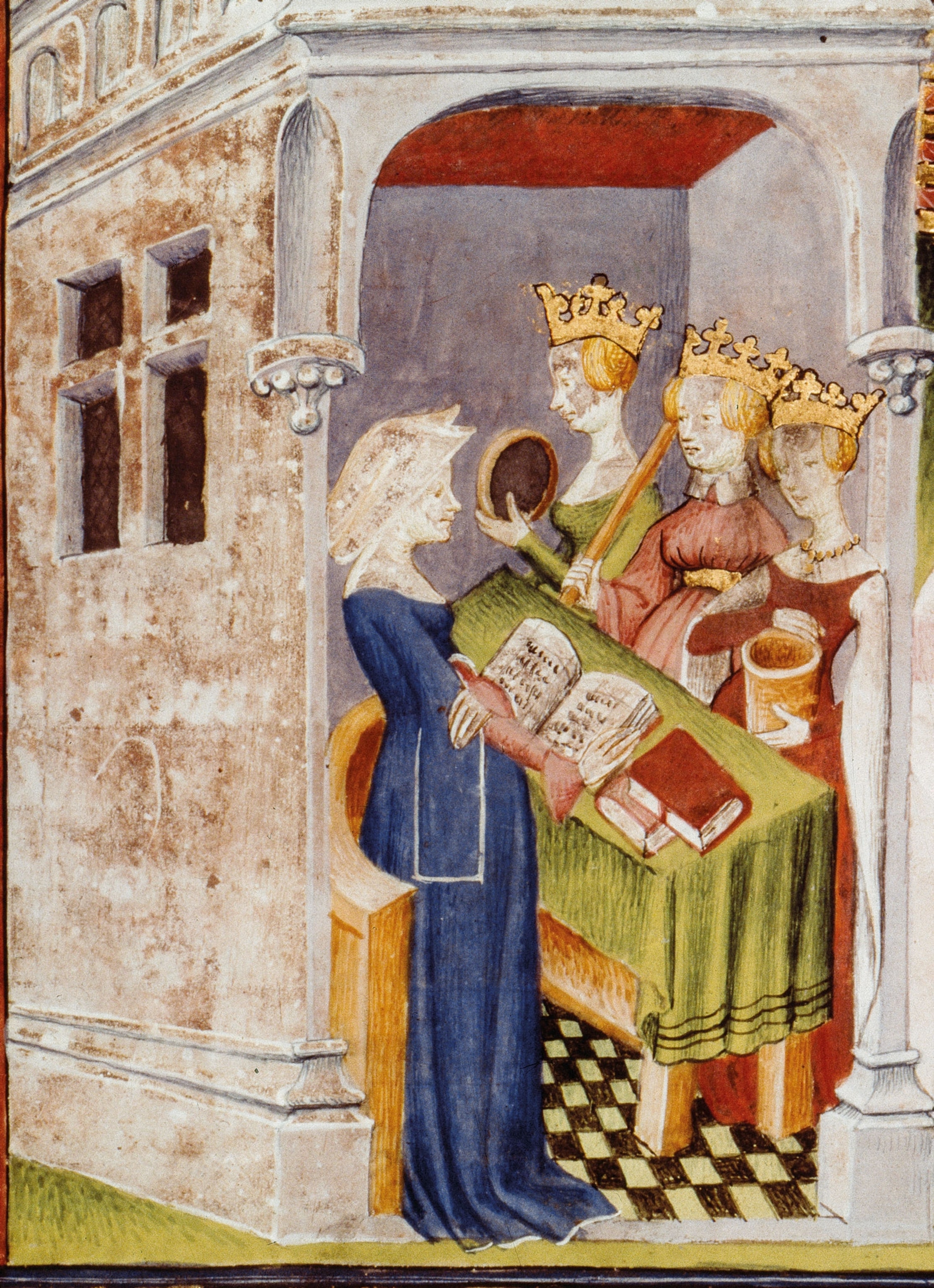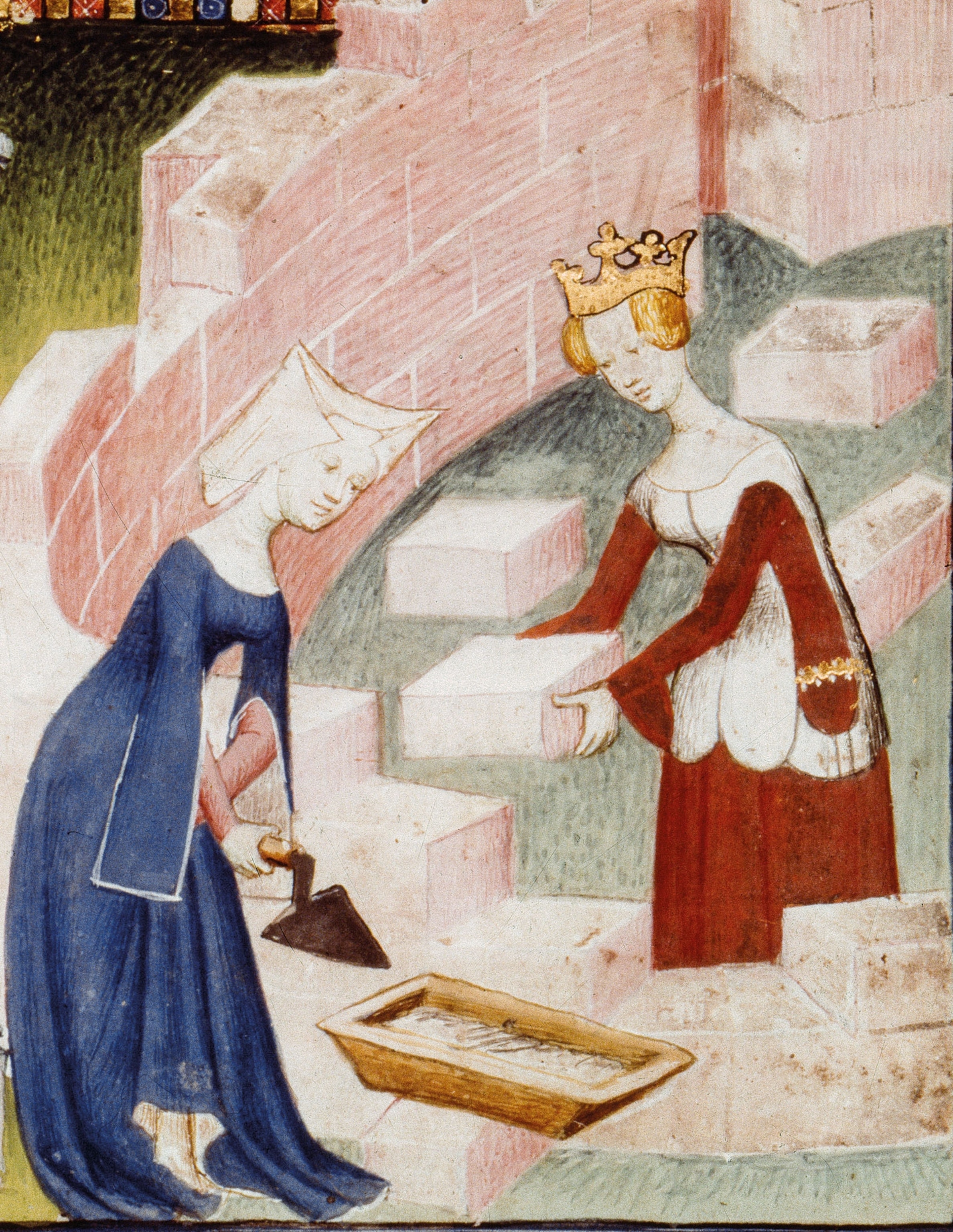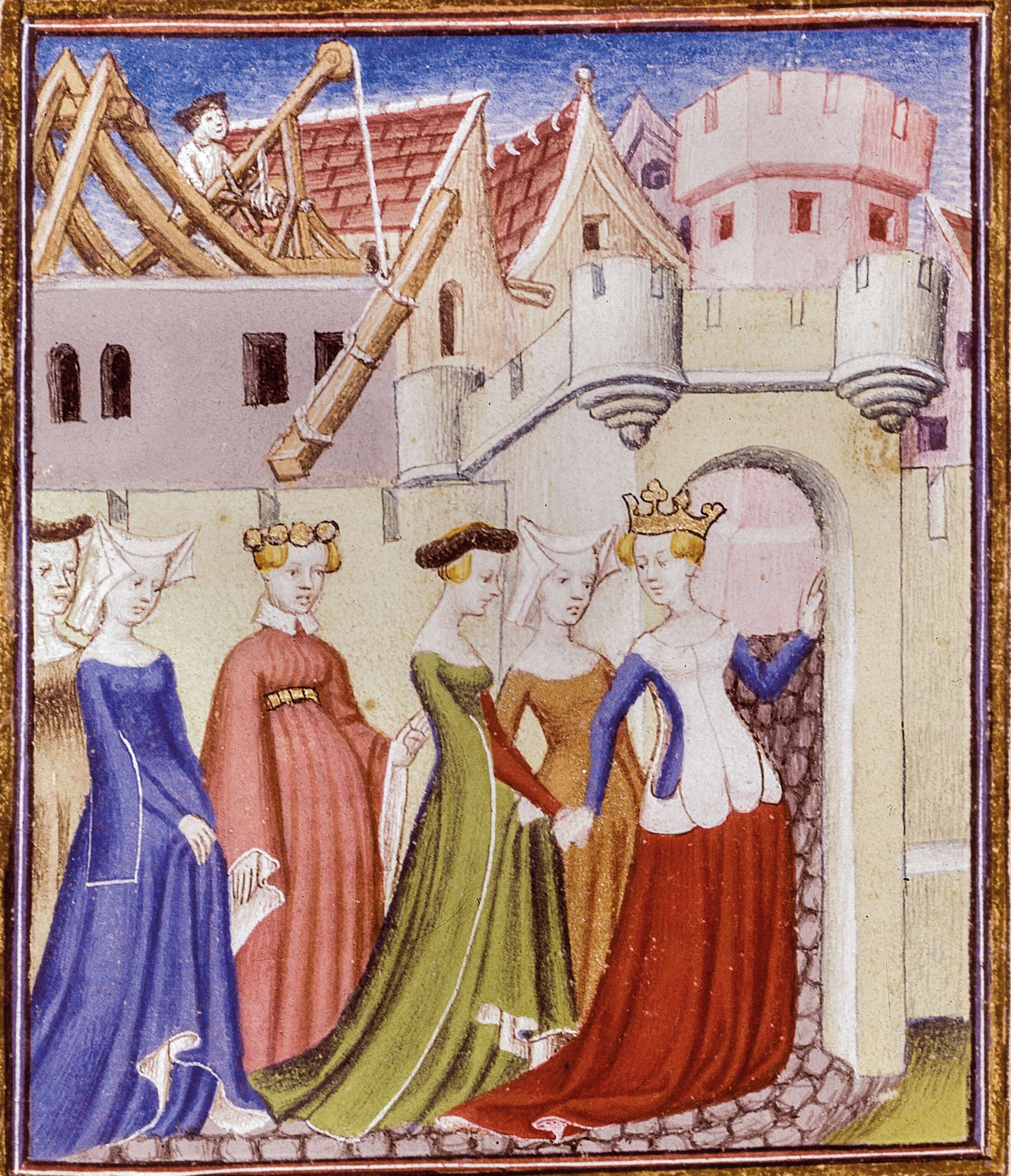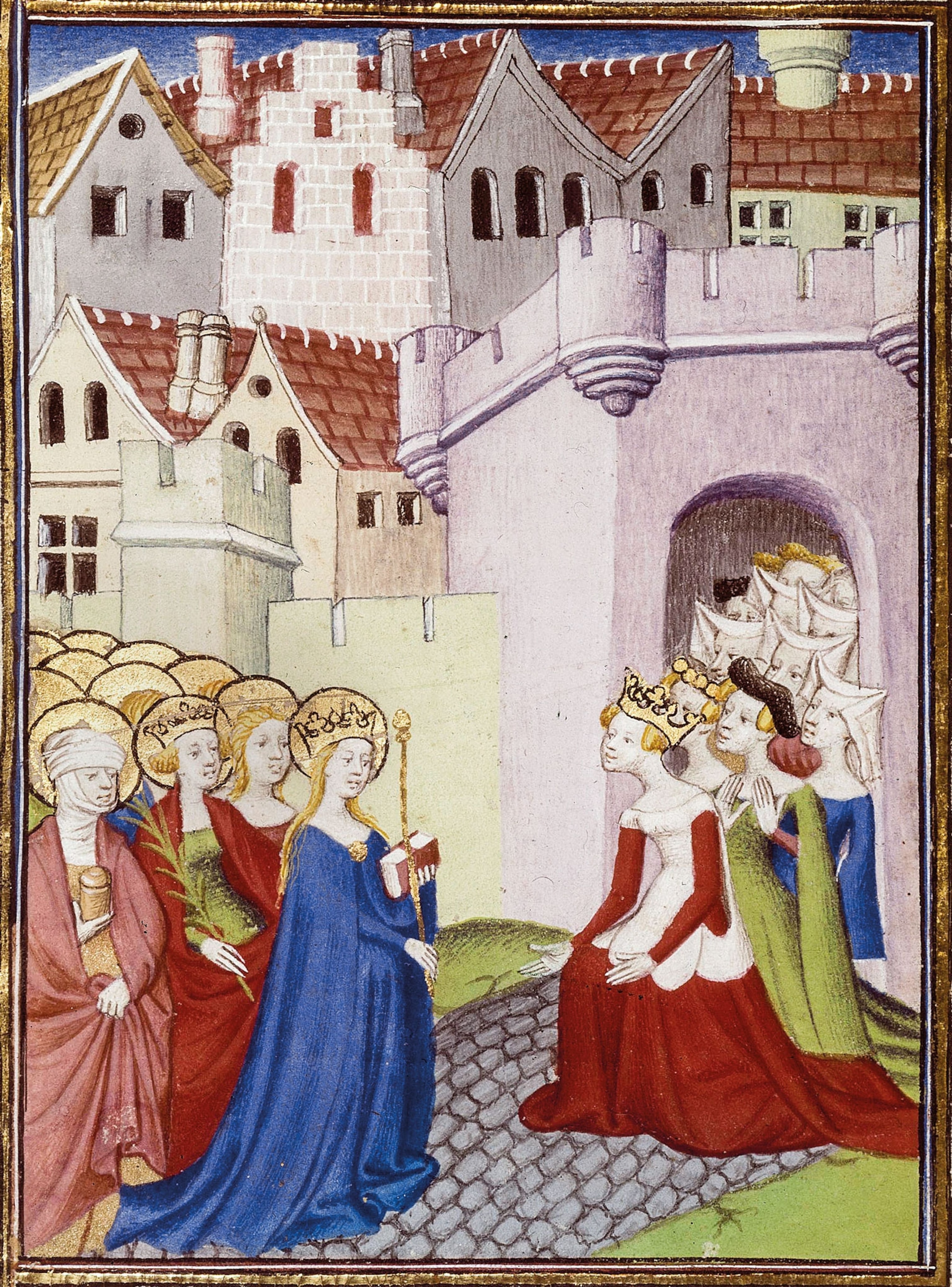This single working mom was Europe's first professional woman writer
Christine de Pisan upended medieval norms not only by refusing to remarry but also by being the first woman to make a living with her pen.
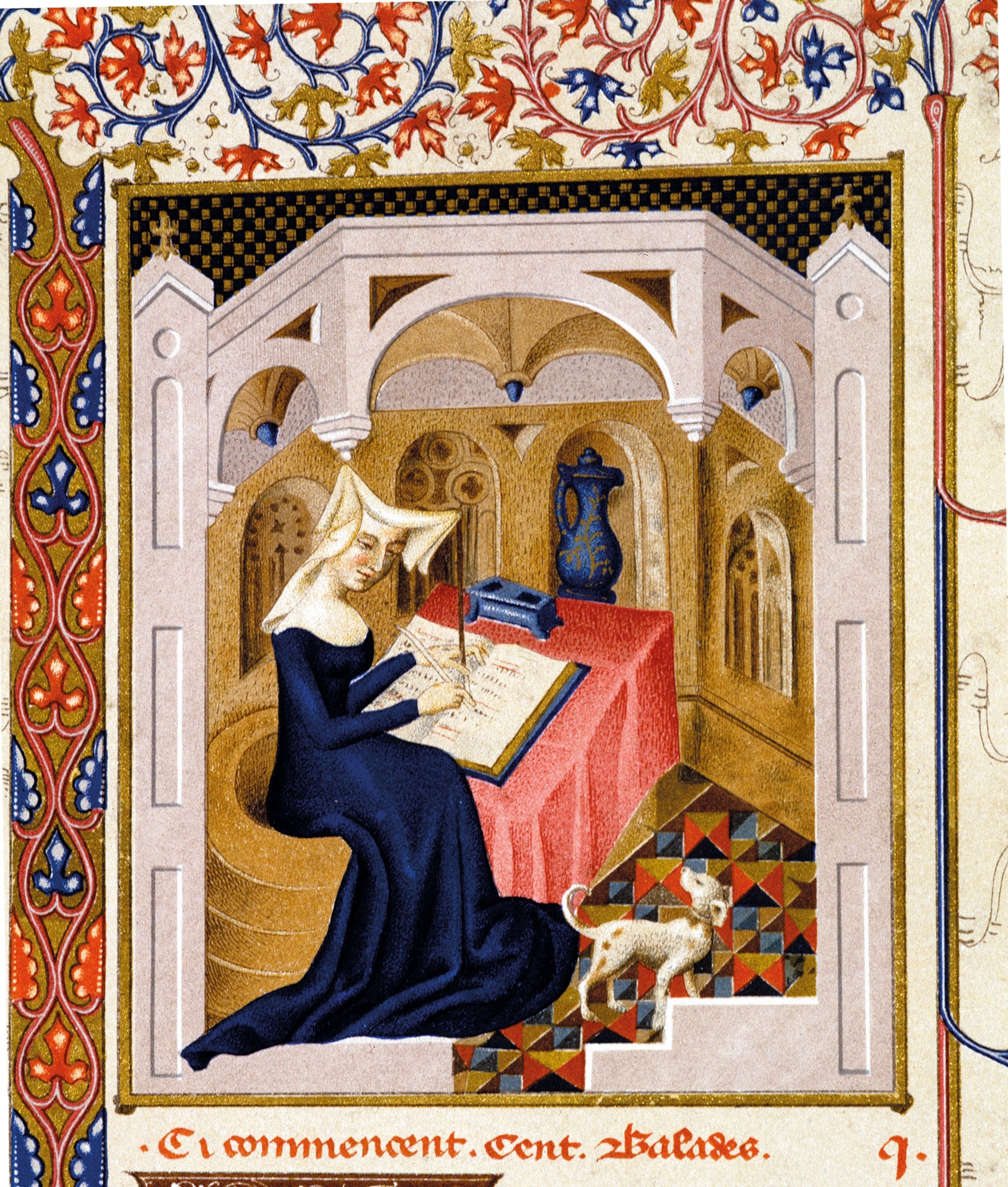
For a daughter to receive the same education as a son was rare in the mid-14th century, and Christine de Pisan’s childhood was one such exception. Born in Venice in 1364 and raised in France, Christine (also known as Christina) used the advantages of her early education to forge a prolific writing career to support herself and her family, an unprecedented achievement for the time. A poet and biographer, Christine celebrated remarkable female figures in her works, including an account of Joan of Arc written during her lifetime.
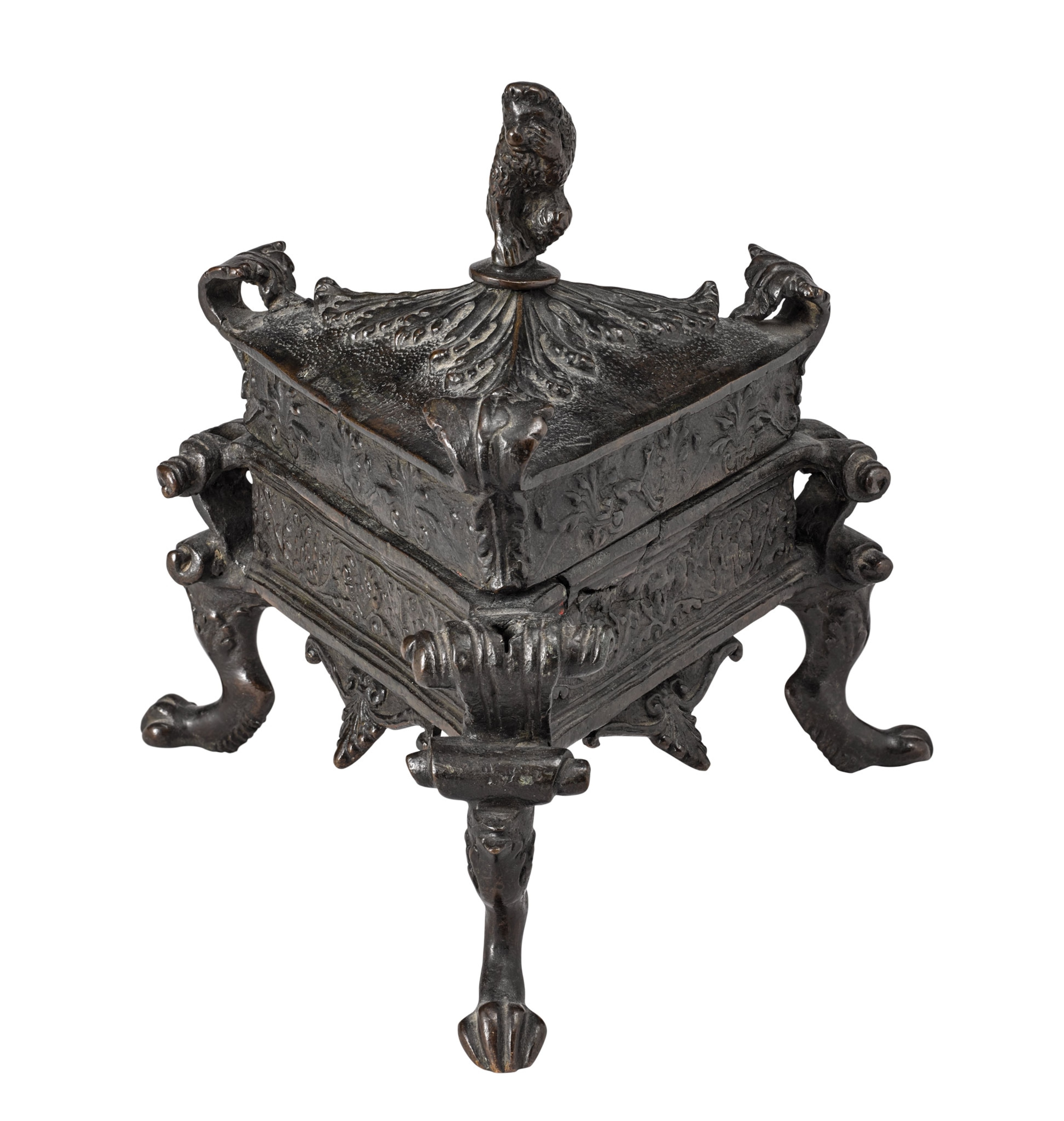
Christine’s father was a Bolognese physician and astrologer, Tommaso da Pizzano. His reputation as an intellectual secured him employment as the court astrologer of King Charles V of France. Tommasso moved the family there when Christine was four. She had two younger brothers, and Tommasso—an open-minded man for the times—decided to provide a formal education for all three children. Christine received lessons in Greek, Latin, great works of literature, history, philosophy, and medicine. A voracious reader, she was known to have spent hours in the library of the royal palace of the Louvre, which had been founded by her father’s patron, Charles V. (Did sons and daughters get the same education in ancient Greece?)
Wife then widow
Alongside her desire to soak up knowledge, Christine de Pisan also demonstrated precocious literary flair. As a child, she composed songs and ballads that delighted members of the court. Her father, who gained prestige in King Charles V’s inner circle, did his utmost to ensure an advantageous marriage for his daughter as soon as she was old enough to wed. In 1379, age 15, Christine married Étienne du Castel, a notary and secretary to the king. It was, by Christine’s own account, a blissfully happy union. The pair had three children: two sons and a daughter.
A few years later Christine lost her father, and then her husband died soon afterward in an epidemic (some sources say the bubonic plague) around 1389. At age 25, Christine became a widow with three children and a mother to support. Her brothers had returned to Italy and could not help her.
Conventional widows would have remarried, but Christine decided to earn her own living as a writer.
The conventional solution at the time would have been to seek out a new husband and remarry, but Christine took a different course of action. She decided to carry on alone and support her family with her own literary talents. As she wrote in her journal: “I had to become a man.” (This medieval queen also held her own in a man's world.)
Working woman
She found work as the manager of a scriptorium, where she supervised the work of calligraphers, bookbinders, and miniaturists. In her spare time she wrote, drawing on her wealth of reading. For additional income, Christine began sending the poems she composed to influential figures, hoping to attract their patronage.
Her boldness paid off, and she gained appreciative sponsors. Writing became Christine’s livelihood, and she was able to support her family. Her principal patron and source of income was King Charles VI (the son of the French king Charles V, who died in 1380). Christine was able to attract more noble patrons, even some from outside France. They included Philip II of Burgundy, Queen Isabella of Bavaria, and England’s Earl of Salisbury. (Life for this Bavarian princess was no fairy tale.)
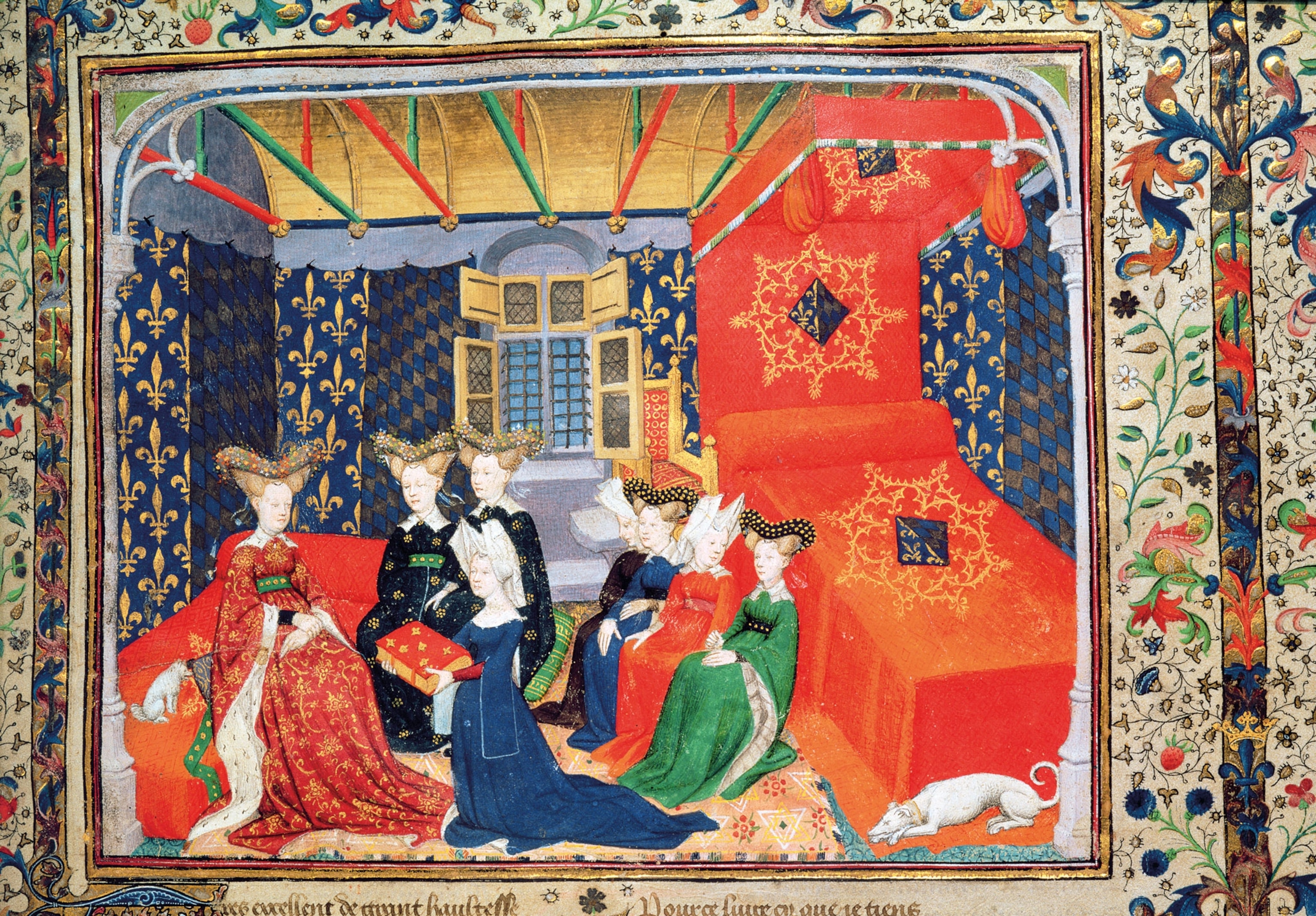
Beyond writing poetry, Christine proved to be an outspoken and influential social and literary critic. In the early 1400s she debated the king’s secretaries about the moral fitness of the Roman de la Rose, a long allegorical poem first written by Guillaume de Lorris and then continued by Jean de Meun in the 13th century. Christine argued that the work’s portrayal of women was problematic, attributing negative traits to allegorical female figures and also portraying women as mere objects to satisfy male desires. She was outspoken in her criticism of the work, helping to launch a more general debate in the French court about the status of women. She argued that women’s inferior position was not natural, but cultural.
In 1405 Christine further explored her defense of women in what became one of her most famous works, Le Livre de la cité des dames (The Book of the City of Ladies). In it, Christine imagines a city occupied by remarkable women from history: the poet Sappho; Dido and Semiramis, founders of Carthage and Babylon; Zenobia, queen of Palmyra; Eve and Esther from the Hebrew scriptures; the Virgin Mary; St. Cecilia; and Queen Isabella of Bavaria. (From Ancient Egypt to today, these women rule the world.)
City of Ladies highlights the importance of education to shaping virtuous and strong women. One passage reads: “If it were customary to send little girls to school like boys . . . they would learn as thoroughly the subtleties of all the arts and sciences.” Christine points out that foolish men considered it bad for females to be educated “because it displeased them that women knew more than they did.” (These are the best places to be a woman today.)
Life during wartime
Christine’s life unfolded amid the political turmoil of the Hundred Years’ War, fought between France and England, a series of disputes over land and succession. With this conflict never far from her mind, Christine’s writings extended to the virtues of good governance. In 1413 she penned one of her last major works, Le Livre de la paix (The Book of Peace), a series of governing advice for the heir to King Charles VI. Following England’s invasion of France in 1415, Christine took refuge in a convent in Poissy, where years earlier her daughter had taken her vows. She stopped writing for many years.
After Charles died in 1422, his heirs battled for the French crown. Henry V of England backed one faction, the Burgundians, and the other was led by the future Charles VII. Christine found the war troubling but found hope after the siege of Orléans, a French victory in 1429 led by Joan of Arc. Inspired by the news, she took up her pen and wrote “Le Ditié de Jehanne d’Arc” (“The Tale of Joan of Arc”), hailing her as a new shining light for the French. Christine died around 65 in circa 1430, and her poem stands as the only work penned during the Maid of Orleans’ lifetime.
Christine de Pisan’s choice to become a professional writer allowed her to build a body of work and express new thinking about women. Centuries later Simone de Beauvoir, in her 1949 treatise The Second Sex, described her stance as “the first time a woman takes up her pen to defend her sex.”
